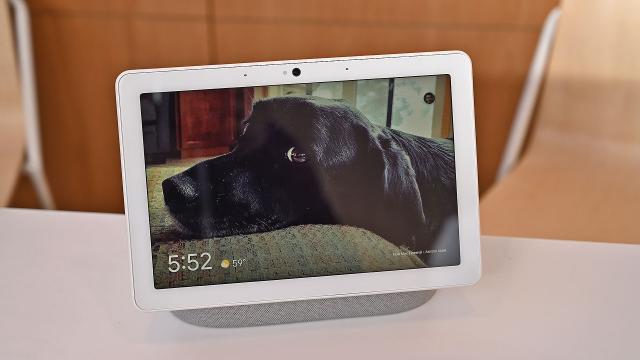At Google I/O 2019, Google announced it was renaming the Google Home Hub smart display to be the Google Nest Hub while also combining the two brands into a presumably more harmonious single entity. Now Google wants Nest users to better understand what’s happening.
The piece of news that didn’t get a lot of attention is that as part of the process, current Nest users are essentially being forced (or at the very least strongly encouraged) to convert their Nest accounts to Google accounts, which sparked some concern about device compatibility and future updates.
And just today, Google posted another blog further clarifying what’s going with its big smart home migration, so here’s a quick rundown of what Nest owners should know before their devices stop getting new features.
So what’s going on with Nest accounts?
If you have a Nest account linked to Nest smart home devices, those gadgets will continue to work, but you won’t get any new or upcoming features. This also holds true for any Nest devices reliant on the Works with Nest support in order to talk with other smart home devices outside of the Google/Nest ecosystem like an Amazon Echo.
However, starting August 31st, 2019, Google will stop accepting new Works with Nest connections, which means if you haven’t tried to set up cross-platform smart home integration by then, you may be temporarily out of luck.
That said, for people concerned about losing the ability to use an Echo to adjust your Nest thermostat, Google says it’s currently working with Amazon to port over the skill that lets you control Nest devices with Amazon’s Alexa, which hopefully is something Google figures out before the end of August.
How do I convert my account?
This process hasn’t been totally ironed out yet, but Google says that “Over the next few months, users with Nest Accounts will be invited to migrate to Google Accounts.” This implies that there will be an online form of some sort, either on Nest’s website or in the Nest or Google Home apps that will allow you to merge your Nest and Google accounts, a process that will have the nice side effect of giving Nest users one less set of login credentials to keep track of.
What about IFTTT support?
In both of Google and Nest’s posts concerning the upcoming migration, neither post mentions what will happen to any IFTTT (If This Then That) recipes or routines you may have set up. However, since it is possible to use certain IFTTT applets in conjunction with the Google Assistant, IFTTT support on Google/Nest smart home devices may be one of those features that get added back in or expanded on after this migration. We’ve reached out to Nest for more clarification and will update this post if we get more information.
What happens after August 31st?
Hopefully, you’ve already merged you Nest and Google accounts by then, but as far as the bigger picture goes, Google and Nest say that by unifying to the two brands, it should be able to offer a more streamlined solution to smart home management.
Additionally, while Nest is dropping support for the Works with Nest platform in favour of the larger Works with Google Assistant support, since the latter platform already boasts a much larger ecosystem comprised of, respectively, more than 3,500 partners and 30,000 various devices, this move could pave the way for more powerful and easier smart home device integration in the future.
One example Google provided was that one of the most popular Works with Next features was the ability to trigger different routines based on if you were home or not. So later this year, that same functionality will come to the Google Assistant, but with more control over specific devices and routines such as the ability to turn on smart bulbs (a device that doesn’t really work with Nest’s control right now) when the Google Assistant detects that you just got home.
As part of the migration, Google is also touting increased security, with Google’s smart home device partners undergoing new security audits that will help determine what kind of data gets shared and will allow users to control which devices can access that data.
For some, this change might only be a minor blip, while others may have to deal with a bigger headache. Either way, it’s a bit of pain, though when Google announced last year that it was going to absorb Nest instead of letting it continue to operate as a separate entity, merging the two company’s accounts was sort of inevitable outcome. Here’s hoping Google can make this transition as smooth as possible, otherwise there’s going to be a bunch of unhappy smart home users this fall.
